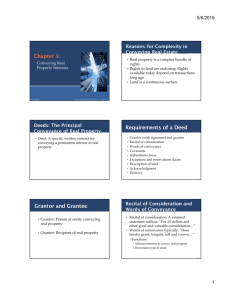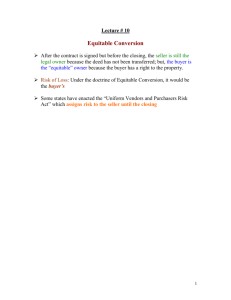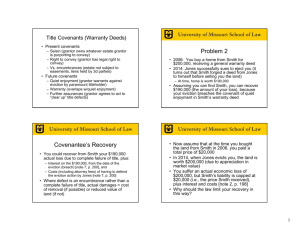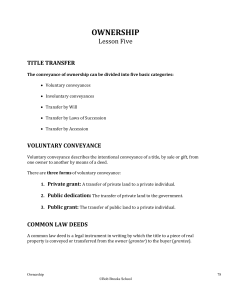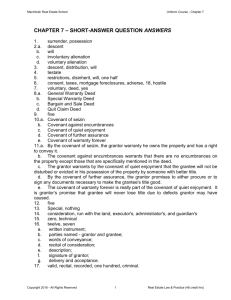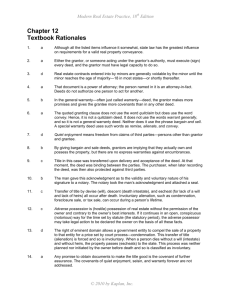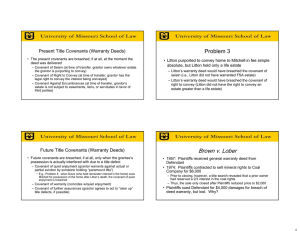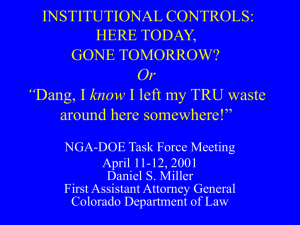Title Assurance - Professor Beyer
advertisement
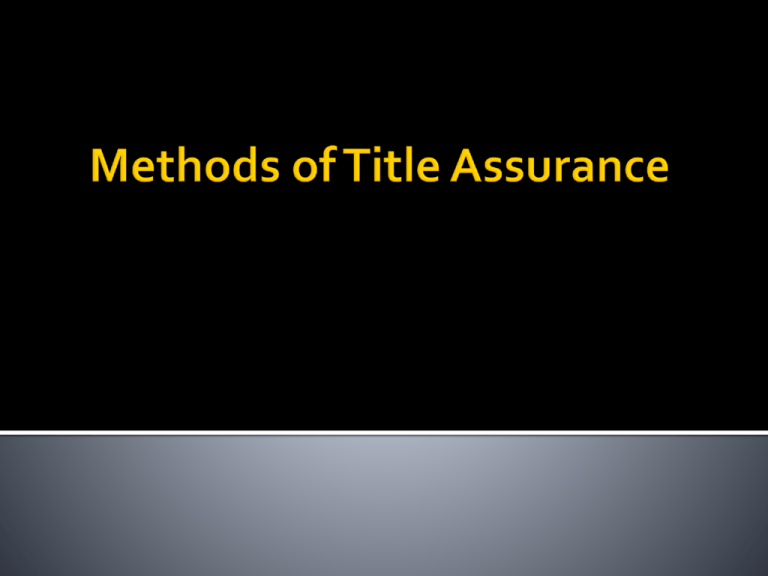
1. Personal Covenants for Title 1. Personal Covenants for Title 2. Title Examination 1. Personal Covenants for Title 2. Title Examination 3. Title Insurance 1. Personal Covenants for Title 2. Title Examination 3. Title Insurance 4. Title Registration 1. Personal Covenants for Title 2. Title Examination 3. Title Insurance 4. Title Registration 5. Statutes of Limitations/Adverse Possession Quitclaim Deed No promises. But, some states by statute say all deeds have some basic promises, e.g., the grantor has not previously conveyed the property. Warranty Deed – Present Covenants 1. Covenant of Seisin ▪ Promise that own property transferring ▪ Promise that grantor has not already transferred Warranty Deed – Present Covenants 2. Covenant of Good Right to Convey ▪ Grantor has right to transfer the property Warranty Deed – Present Covenants 3. Covenant Against Encumbrances ▪ Property free and clear of all non-agreed easements, mortgages, liens, covenants, servitudes, etc. Warranty Deed – Future Covenants 1. Covenant of Quiet Enjoyment ▪ No one with better title will evict grantee. Warranty Deed – Future Covenants 2. Covenant of Warranty ▪ Grantor will defend grantee’s title (grantor will protect grantee’s quiet enjoyment) Warranty Deed – Future Covenants 3. Covenant of Further Assurances ▪ Grantor will take steps reasonably necessary to protect or perfect grantee’s title Self-help and self-reliance. Check all records. Purchaser Purchaser’s attorney Title company Registration system with limited use in only a few states one of which is Ohio. Typical protected risks: Grantor’s disability Marital rights Forgery Errors in recording Undisclosed heirs & pretermitted children Typical unprotected risks: Specifically mentioned exclusions Purchaser lacks BFP status Things revealed by inspection Boundary problems 1. Actual possession for required number of years 2. Open, visible, and notorious 3. Exclusive Tacking of successive possessors allowed if they are in privity of estate with each other. 4. Continuous and peaceable 5. Hostile No permission from owner. 6. Under claim of right Example = forged deed Element not always needed but may shorten time period. 7. Cultivates Element not always required but may shorten time period. 8. Pay property taxes Element not always needed but may shorten time period.

